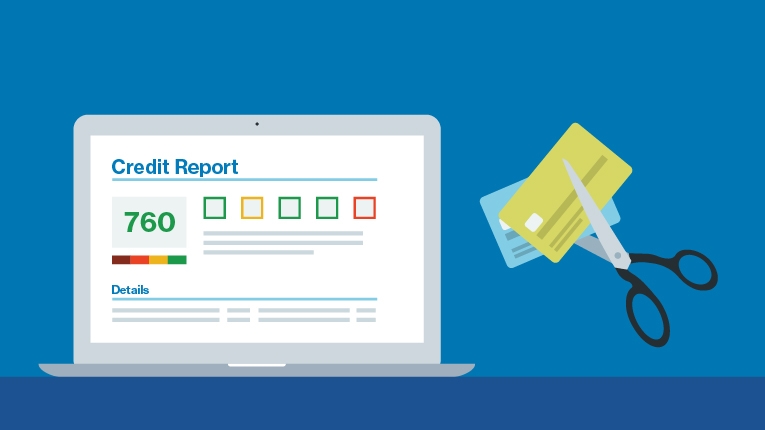Personal Loans with a Cosigner vs. Co-borrower

If you’re just starting out, living paycheck to paycheck, or working on improving your credit score, securing a new personal loan on your own could be challenging. However, you might be able to get approved by applying along with someone else—a cosigner or co-borrower.
Applying with another person can give you the boost you need to get approved with either an online lender or a traditional bank or credit union. It could even help you secure better loan terms than you could get by applying on your own. But asking someone to sign for a personal loan along with you comes with considerations and risks both for you and for your personal loan cosigner. It’s also important to know the difference between applying with a cosigner vs. a co-borrower.
Before you apply, here’s everything you need to know about personal loans with a cosigner vs. co-borrower.
What Is a Cosigner?
A cosigner is a person who applies for a loan or credit account with another person who may not be able to qualify on their own. With a cosigner, that individual agrees to take equal responsibility for the loan with you, essentially strengthening your application by agreeing to make payments and adhere to the repayment terms if you failed to pay. While a cosigner is legally liable for the debt, they may not have legal rights (ownership interest) to the property, items, or services purchased with the money. In other words, agreeing to be a cosigner is a generous act.
If a cosigner has a solid income history and a good credit score, lenders may be more willing to approve your loan—and possibly offer you a lower interest rate—even if your credit history isn’t that great. However, if you do miss payments, both your and your cosigner’s credit history could be negatively impacted.
What Is a Co-borrower?
A co-borrower is any additional borrower whose name appears on a loan application and whose income and credit history are used to help qualify for the loan. In this situation, each person named on the loan has an equal, or shared, obligation to repay the loan. Co-borrowers on a joint unsecured loan may also have equal rights (ownership interest) to the property, items, or services purchased with the money.
Getting a Personal Loan with a Cosigner vs. Co-borrower
Depending on the type of loan you’re looking for (auto, mortgage, personal loan), getting a loan with a cosigner or co-borrower will involve different obligations. The distinction between a co-signer and co-borrower varies with the type of loan.
For example, let’s say there’s someone with a strong credit history who wants to help you qualify for an auto loan, and agrees to cosign. The loan will appear on both of your credit reports, however, your cosigner won’t have property rights to the car or access to the loan funds—and they will be responsible for making your car payments if you default on the loan.
On the other hand, let’s assume you and another person decide to apply for a joint personal loan and become co-borrowers, or 50/50 partners, on the loan. You’ll both sign the loan application, and you’ll both be responsible for making payments on time and repaying the loan in full. As a co-borrower, they will have the same rights to the loan funds as you.
Joint Personal Loans with a Co-borrower vs. Personal Loans with a Cosigner
When it comes to personal loans, the terms “cosigner” and “co-borrower” are often (mistakenly) used interchangeably, which can be confusing. What’s important to keep in mind is that most joint personal loans will be co-borrower arrangements. In this case, two individuals submit a joint application, both are obligated to repay the loan, and both have rights to the loan proceeds.
Why You May Need a Cosigner or Co-borrower on a Personal Loan
Most of us experience unexpected financial emergencies at one point or another. It isn’t uncommon for car repairs, home repairs, or medical expenses to exceed what you can comfortably pay. In fact, a 2023 study from LendingClub and PYMNTS report that well over half of Americans are living paycheck to paycheck and unanticipated emergencies cost consumers an average of $1,400.
While a personal loan can help bridge the gap, lenders typically require you meet certain criteria to qualify for a loan. If you don’t meet these key requirements (which can vary from lender to lender), having a co-borrower or cosigner who does (or who can help you meet them) can mean the difference between getting approved and being denied. Lending criteria that may make it difficult for you to be approved for a loan without a cosigner include:
Below-average credit
On the FICO scale, a credit score of 700 or above is usually considered “good.” If your scores are around this range, you’re more likely to get approved and receive a more favorable interest rate. Anything less, and lenders may see you as more of a risk. If your credit scores fall into the 600 range, you may still get approved, but it may be at a higher interest rate with less favorable terms. Often many lenders consider scores below 600 as higher risk and you may have a difficult time getting approved for a loan.
No credit
If you’re still in school, just starting out in your career, or have never had a credit card, you may not have had enough time to establish a good credit history yet. Without much credit history (also known as having a "thin file"), lenders are unable to predict how you’ll manage a loan or make loan payments.
Not enough income
Lenders want to make sure you have steady cash reserves to make your monthly payments. If you’re not working, or work as a contractor or freelancer, proving your income will be more challenging.
What to Look for in a Cosigner or Co-borrower
Not just anyone can sign a loan with you. When you are getting a loan with a cosigner or co-borrower, lenders want to see that your cosigner or co-borrower can meet basic lending criteria and requirements for approval. Before you decide who to ask, it helps to think about it from the lender’s point of view.
700+ credit score
Your cosigner or co-borrower should have a solid financial history and, ideally, an excellent credit score. Typically, lenders look at credit reports (on-time payment history, credit mix) and credit scores to determine someone’s future ability to pay. Look for a cosigner or co-borrower with a FICO score of 700 or higher: these individuals get access to the best personal loan rates.
Low debt
How much debt a borrower has plays a factor in their ability to repay. Lenders typically look for cosigners or co-borrowers with a good debt-to-income ratio (how much debt they have compared to what they generate in income). In the eyes of a lender, lower debt and higher income signals your cosigner or co-borrower has less financial strain and will be able to repay the loan should you stop making payments.
Higher income
Your cosigner or co-borrower should have enough steady income (relative to their expenses) to comfortably make monthly payments on the loan amount if you were unable to make payments on your own. This will provide both you and the lender with greater peace of mind.
Finding a Cosigner or Co-borrower
Lenders can’t tell you whether you should consider having a cosigner or co-borrower with you on a loan, or whom that should be. If the other person meets the lender’s eligibility criteria, you can ask whomever you want to be a cosigner or co-borrower with you. Keep in mind you’ll be in this loan for several months, if not a year or longer, in many cases. Be transparent with your cosigner or co-borrower about your situation and make sure it won’t damage your relationship. Here are a few ways to go about it:
Have a plan for paying back your loan.
Before you decide who you’ll ask to cosign or co-borrow a loan with you, think through and share how you plan to pay the money back. Showing that you have a solid repayment plan on paper will demonstrate to your cosigner or co-borrower that you’re committed to seeing the terms of the loan through to the end. Make sure you’ve accounted for extra costs like origination fees or prepayment penalties. Also, consider debt consolidation or refinancing if you have other outstanding loans.
Ask a family member.
Borrowers often ask their parents or siblings to cosign or be a co-borrower for a personal loan for a good reason: They know you. The people you know best know your financial situation and how hard you’re working to move forward. For some people, close family members can serve as supportive cosigners or co-borrowers when you need help qualifying for a loan.
Go to someone you trust.
Your partner, a mentor, or even a trusted family friend could act as your cosigner or co-borrower. The key is finding someone you trust since you’ll be entering into a financial agreement together.
Consider your relationship.
Before you ask, give the idea some careful consideration. For example, if you’re not sure your cosigner or co-borrower will still be in your life months or a year down the road, being on a loan together could prove problematic. Likewise, if you’re not sure how they’ve managed their money in the past, you may have difficulty getting approved.
The Bottom Line
If you'd like to apply for a joint personal loan with a co-borrower—or borrow money in any form—consider your whole financial picture and decide what’s best for you. If a personal loan sounds like it might be a good fit, you can check your rate with LendingClub Bank, with no impact to your credit score.
Personal Loans with a Cosigner vs. Co-borrower FAQ
Do you still have questions about co-signing? Some of these commonly asked questions about getting a loan with a cosigner or a co-borrower may provide the answer.
1. Am I required to have a cosigner or co-borrower on a personal loan?
No. If you think you can qualify for a loan using your own credit history and income, and meet the other lending requirements, you may not need a cosigner or co-borrower. However, if your debt-to-income is at the high end of the range, or other requirements put you on the cusp of approval, you might get a better loan term or interest rate if you apply with another person who has a stronger credit profile.
2. When is it better to have a cosigner or co-borrower?
If you’ve had credit problems in the past or don’t have enough credit history, having a cosigner or co-borrower may help you get approved. It’s especially helpful if you have inconsistent income or rely on income from side gigs. An inconsistent income can be difficult to prove and having a cosigner or co-borrower with a steady paycheck can help offset that.
3. What impact will the loan have on my cosigner’s or co-borrower’s credit score?
Depending on your cosigner’s or co-borrower’s overall credit picture, the loan may impact their overall debt-to-income ratio which may influence their credit scores. Also, if you failed to make monthly payments on time or did not pay off the loan by the end of the term, it could adversely impact your as well as their credit scores.
4. What happens if I’m late or miss a loan payment?
Anytime you make a late payment, your lender can report that information to the credit bureaus, which could impact your and your cosigner’s or co-borrower’s credit history and credit scores. If you miss several payments in a row and wind up defaulting on the loan, your cosigner or co-borrower will be responsible for making those payments and, possibly, paying off the loan balance in full (which can affect both of your credit histories and credit scores). One simple way to avoid missing payments is to set up autopay on your account so your payments are automatically deducted from your bank account on time, every month.
5. Can I have a cosigner or co-borrower on a personal loan from LendingClub Bank?
While you cannot have a cosigner on a personal loan with LendingClub Bank, you can apply for a joint personal loan with a co-borrower. For example, let’s say you want to consolidate some medical bills, but your credit history is not strong enough for you to get approved on your own. If you’re not certain you’d qualify, you could apply for a joint personal loan with someone else, as long as they have a stronger credit profile that would strengthen your chance of approval.
6. Where can I find the best personal loans?
There's no one best place to find the best personal loan offers for you. Different lenders offer different terms and interest rates, and your overall credit history will play a big part in getting the lowest rate possible and terms that will be offered to you.




